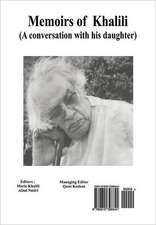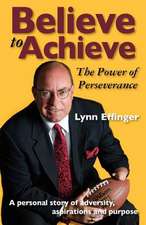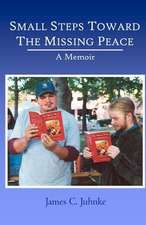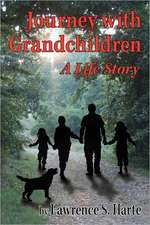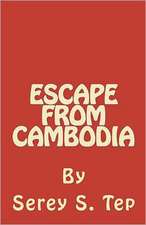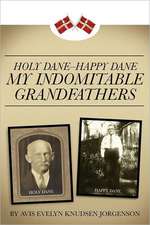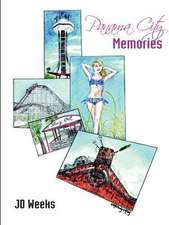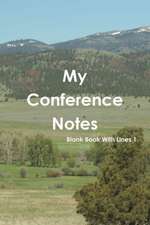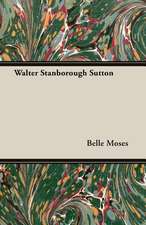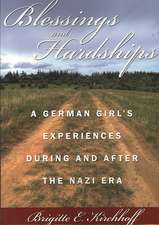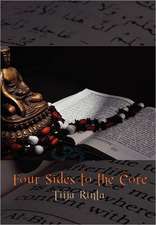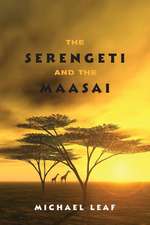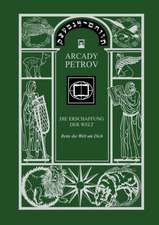Man Alive: A True Story of Violence, Forgiveness and Becoming a Man: City Lights/Sister Spit
Autor Thomas Page McBeeen Limba Engleză Paperback – 8 sep 2014
Vezi toate premiile Carte premiată
Lambda Literary Awards (2015)
Winner - Best Transgender Nonfiction - 2015 Lambda Literary Awards
Best Books of 2014 - Publishers Weekly
Best Books of 2014 - NPR Books
Best Nonficton Books of 2014 - Kirkus Reviews
10 Best Transgender Non-Fiction Books - Advocate
"Thomas Page McBee’s Man Alive hurtled through my life. I read it in a matter of hours. It’s a confession, it’s a poem, it's a time warp, it’s a brilliant work of art. I bow down to McBee—his humility, his sense of humor, his insightfulness, his structural deftness, his ability to put into words what is often said but rarely, with such visceral clarity and beauty, communicated."—Heidi Julavits, author of The Vanishers and The Uses of Enchantment
What does it really mean to be a man?
In Man Alive, Thomas Page McBee attempts to answer that question by focusing on two of the men who most impacted his life&mash;one, his otherwise ordinary father who abused him as a child, and the other, a mugger who almost killed him. Standing at the brink of the life-changing decision to transition from female to male, McBee seeks to understand these examples of flawed manhood and tells us how a brush with violence sent him on the quest to untangle a sinister past, and freed him to become the man he was meant to be.
Man Alive engages an extraordinary personal story to tell a universal one—how we all struggle to create ourselves, and how this struggle often requires risks. Far from a transgender transition tell-all, Man Alive grapples with the larger questions of legacy and forgiveness, love and violence, agency and invisibility.
Praise for Man Alive:
"Man Alive is a sweet, tender hurt of a memoir ... about forgiveness and self-discovery, but mostly it’s about love, so much love. McBee takes us in his capable hands and shows us what it takes to become a man who is gloriously, gloriously alive."—Roxane Gay, author of Bad Feminist and An Untamed State
"Thomas Page McBee's story of how he came to claim both his past and his future is by turns despairing and hopeful, exceptional and relatable. To read it is to witness the birth of a fuller, truer self. I loved this book."—Ann Friedman, columnist, New York Magazine
"'Whoever's child I am, my body belongs to me,' McBee writes, and his book is an elegant, generous transcription of the journey toward this incandescent, non-aggrandized, life-sustaining form of self-possession—the kind that emanates from dispossession, rather than running from it."—Maggie Nelson, author of Bluets and The Art of Cruelty: A Reckoning
"Well aware that memory and identity rarely follow a linear path, Thomas Page McBee attempts to answer the question, 'What does it really mean to be a man?' Weaving past and present to do so, the book's journey connects violence, masculinity and forgiveness. McBee has an intelligent heart, and it beats in every sentence of this gorgeous book."––Saeed Jones, author of Prelude to Bruise
"Exquisitely written and bristling with emotion, this important book reminds us of how much vulnerability and violence inheres to any identity. A real achievement of form and narrative.”—Jack Halberstam, author of The Queer Art of Failure
About the Author:
Thomas Page McBee was the "masculinity expert" for VICE and writes the columns "Self-Made Man" for The Rumpus and "The American Man" for Pacific Standard. His essays and reportage have appeared in the the New York Times, TheAtlantic.com, Salon, and BuzzFeed, where he was a regular contributor on gender issues. He lives in New York City where he works as the editor of special projects at Quartz, and is currently at work on a book about modern American masculinity.
Best Books of 2014 - Publishers Weekly
Best Books of 2014 - NPR Books
Best Nonficton Books of 2014 - Kirkus Reviews
10 Best Transgender Non-Fiction Books - Advocate
"Thomas Page McBee’s Man Alive hurtled through my life. I read it in a matter of hours. It’s a confession, it’s a poem, it's a time warp, it’s a brilliant work of art. I bow down to McBee—his humility, his sense of humor, his insightfulness, his structural deftness, his ability to put into words what is often said but rarely, with such visceral clarity and beauty, communicated."—Heidi Julavits, author of The Vanishers and The Uses of Enchantment
What does it really mean to be a man?
In Man Alive, Thomas Page McBee attempts to answer that question by focusing on two of the men who most impacted his life&mash;one, his otherwise ordinary father who abused him as a child, and the other, a mugger who almost killed him. Standing at the brink of the life-changing decision to transition from female to male, McBee seeks to understand these examples of flawed manhood and tells us how a brush with violence sent him on the quest to untangle a sinister past, and freed him to become the man he was meant to be.
Man Alive engages an extraordinary personal story to tell a universal one—how we all struggle to create ourselves, and how this struggle often requires risks. Far from a transgender transition tell-all, Man Alive grapples with the larger questions of legacy and forgiveness, love and violence, agency and invisibility.
Praise for Man Alive:
"Man Alive is a sweet, tender hurt of a memoir ... about forgiveness and self-discovery, but mostly it’s about love, so much love. McBee takes us in his capable hands and shows us what it takes to become a man who is gloriously, gloriously alive."—Roxane Gay, author of Bad Feminist and An Untamed State
"Thomas Page McBee's story of how he came to claim both his past and his future is by turns despairing and hopeful, exceptional and relatable. To read it is to witness the birth of a fuller, truer self. I loved this book."—Ann Friedman, columnist, New York Magazine
"'Whoever's child I am, my body belongs to me,' McBee writes, and his book is an elegant, generous transcription of the journey toward this incandescent, non-aggrandized, life-sustaining form of self-possession—the kind that emanates from dispossession, rather than running from it."—Maggie Nelson, author of Bluets and The Art of Cruelty: A Reckoning
"Well aware that memory and identity rarely follow a linear path, Thomas Page McBee attempts to answer the question, 'What does it really mean to be a man?' Weaving past and present to do so, the book's journey connects violence, masculinity and forgiveness. McBee has an intelligent heart, and it beats in every sentence of this gorgeous book."––Saeed Jones, author of Prelude to Bruise
"Exquisitely written and bristling with emotion, this important book reminds us of how much vulnerability and violence inheres to any identity. A real achievement of form and narrative.”—Jack Halberstam, author of The Queer Art of Failure
About the Author:
Thomas Page McBee was the "masculinity expert" for VICE and writes the columns "Self-Made Man" for The Rumpus and "The American Man" for Pacific Standard. His essays and reportage have appeared in the the New York Times, TheAtlantic.com, Salon, and BuzzFeed, where he was a regular contributor on gender issues. He lives in New York City where he works as the editor of special projects at Quartz, and is currently at work on a book about modern American masculinity.
Preț: 90.72 lei
Nou
Puncte Express: 136
Preț estimativ în valută:
17.36€ • 18.06$ • 14.33£
17.36€ • 18.06$ • 14.33£
Carte disponibilă
Livrare economică 24 martie-07 aprilie
Preluare comenzi: 021 569.72.76
Specificații
ISBN-13: 9780872866249
ISBN-10: 0872866246
Pagini: 172
Dimensiuni: 140 x 203 x 18 mm
Greutate: 0.23 kg
Editura: City Lights Publishers
Colecția City Lights Publishers
Seria City Lights/Sister Spit
ISBN-10: 0872866246
Pagini: 172
Dimensiuni: 140 x 203 x 18 mm
Greutate: 0.23 kg
Editura: City Lights Publishers
Colecția City Lights Publishers
Seria City Lights/Sister Spit
Recenzii
“McBee enlarges the study [of masculinity] from a series of vignettes into a full, poetic narrative … a physical transition is part of the work of reclaiming the lost body. But first he must understand how violence fits into the male equation, using as his case studies two men who set out to do one thing but did the opposite: The protector who abused him, and the killer who let him live … the act of writing could amount to a kind of revenge. But empathy, instead, is McBee’s objective, the most important part of becoming real in one’s own eyes. 'Being human,' he concludes, 'means being at the mercy of others.' That’s a part of aspiration, too. We are born human; with hard work, we achieve humanity.”––Henry Giardina, New York Times Book Review
"In this lyrical, affecting memoir, McBee ... [tries] to map his own journey to manhood ... The writing is strongest when McBee is most vulnerable—contemplating 'the warble between the shape in my mind and the one in the mirror'"—Kate Tuttle, Boston Globe
"Man Alive stands as a vitally important book. McBee’s story harnesses the power of self-inquiry, of generosity, of a transformation powerful enough to address even the fallout from child abuse."—Greg Glazner, Los Angeles Review of Books
“[Thomas Page] McBee’s answer to the initial question of “what makes a man?” is more generous, more inspiring, and more creative than the usual gender binaries allow. Full of bravery and clear, far-sighted compassion and devoid of sentiment, victimization, and cliché, McBee’s meditations bring him a hard-won sense of self—one that is bound to inspire any reader who has struggled with internal dissonance.”––Publishers Weekly starred review
“[A] unique, powerful rite-of-passage memoir. Plenty of writers have written about the experience of making the transition from one gender to another, but most haven't also dealt with child molestation, paternity issues and a mugging by a man who would soon commit murder—not to mention a partner who has mixed feelings about the author's becoming a man. Resisting the inclination to sensationalize (or sentimentalize), McBee interweaves the various strands of the narrative, exercising plenty of restraint … The author writes in matter-of-fact detail about the tension and love shared with a fiancee and about self-discovery pilgrimages to explore bloodlines and paternity. 'The world is vicious and beautiful and, to some extent, unexplainable,' writes the author. 'But that doesn't stop us from wanting a story.' This is quite a story, masterfully rendered.”––Kirkus Reviews starred review
“Man Alive does not follow the typical transgender narrative that being with years of struggle in the ‘wrong body’ and ends with arrival in the right one. Instead, the story is a meandering internal journey that traces McBee’s struggle to come to terms with a legacy of male violence in order to fully inhabit his body, his gender, and his life … Paradoxically, by insisting on the full humanity of both of the men who have caused him harm, McBee is able to claim his own agency as a man who chooses compassion and connection over wielding violence against others.”––Wendy Elisheva Somerson, Bitch
"McBee’s beautifully written story is engrossing and brave, and rings with triumph."—Isaac Fitzgerald, BuzzFeed
"'Being human means being at the mercy of others,' Thomas Page McBee points out in Man Alive. It’s one of the many sobering observations he makes in the lyrically written memoir of his transition from female to male. Narrating a series of snapshots of his childhood and twenty-something life, McBee explores not only what defines a man through dissecting his traumatic history, but the mark he’ll make as he mints his identity as male. The book reads like fiction—it’s smooth as butter—and you’ll digest it in just a few hours. What’ll last, though, is McBee’s humility, and the insight of his lessons, and his meditations on love. In a journey to which you might not think you can relate, you’ll find something on nearly every page that’ll resonate.”––Meredith Turits, Bustle
"In his quick, compulsive new memoir, Man Alive, Thomas Page McBee details his FTM transition following a moment of explosive violence. Walking home with his girlfriend one night in Oakland, Calif., McBee is nearly killed in a mugging, saved only when the female sound of his voice scares off his attacker. In that moment he feels both alive and not alive at all, recalling childhood traumas and suddenly becoming acutely aware of his struggle to remain in a woman’s body when he knows he’s a man. Flashing from the past to the present, McBee’s prose is crisp and attentive to the role pain plays in molding our identities. 'Whoever’s child I am, my body belongs to me,' he proclaims, a crystalline reminder that our most fearsome and earthshaking confrontations are the ones we have with ourselves."––Emily Drabinski, Out Magazine
"In many ways, this book occurs at the eye of McBee's storm, a crossroads, a major pivot point in his life. He exercises a profound level of compassion to reconcile his past with his present on behalf of his future. Through conversations with his girlfriend, his mother, siblings, father and extended family, one thing grows abundantly clear: Thomas Page McBee is a man of astonishingly strong character, full of empathy and dynamism. Man Alive isn't a simple memoir; it is a culmination of, as much as it is a springboard into, a manhood that proves to be in the greatest sense alive.”––Dave Wheeler, Shelf-Awareness
“Like jazz. Compelling. Vivid. Dramatic. One would be hard pressed to find better words to describe McBee’s tale … Man Alive doesn’t just offer the reader insight into the creative nonfiction genre, but into trans storytelling as well … McBee is among a growing strand of trans literature that considers transition alongside, and often secondarily, to other key events … The focus of Man Alive is held within its first sentence: 'What makes a man?' It’s uncertainty, its yearning, its deceptive simplicity, its focus on mythical meanings rather than physical ones, its potentially dark undertones, and its potentially liberating ones chart their course through an early adulthood that is undebted to, yet so much more, than an outward, bodily shift from ‘female' to male.”––Mitch Kellaway, Lambda Literary Review
"Man Alive is a moving personal account of what was not long ago decried as an abomination of nature—a perversion. McBee seeks to honestly reveal the emotional and physical complexity underlying the process of gender reassigment, and when all is over, his transition complete, he’ll be just one more ordinary man … The world has changed, but only so much—a fact McBee's memoir illustrates with heartbreaking clarity.”––David Rosen, dot429
"Thomas Page McBee’s Man Alive hurtled through my life. I read it in a matter of hours. It’s a confession, it’s a poem, it's a time warp, it’s a brilliant work of art. I bow down to McBee—his humility, his sense of humor, his insightfulness, his structural deftness, his ability to put into words what is often said but rarely, with such visceral clarity and beauty, communicated."—Heidi Julavits, author of The Vanishers and The Uses of Enchantment
"Man Alive is a sweet, tender hurt of a memoir. Thomas Page McBee deftly recounts what has shaped him into the man he has become and how—from childhood trauma to a mugging in Oakland where he learned of his body’s ability to save itself. This is a memoir about forgiveness and self-discovery, but mostly it’s about love, so much love. McBee takes us in his capable hands and shows us what it takes to become a man who is gloriously, gloriously alive."—Roxane Gay, author of Bad Feminist and An Untamed State
"Thomas Page McBee's story of how he came to claim both his past and his future is by turns despairing and hopeful, exceptional and relatable. To read it is to witness the birth of a fuller, truer self. I loved this book."—Ann Friedman, columnist, New York Magazine
"Reading Man Alive is like sitting with someone uncurling his hands, then holding them out to you, open, so that you can behold all the hard-won strength, insight, agility, and love to be found there. 'Whoever's child I am, my body belongs to me,' McBee writes, and his book is an elegant, generous transcription of the journey toward this incandescent, non-aggrandized, life-sustaining form of self-possession—the kind that emanates from dispossession, rather than running from it."—Maggie Nelson, author of Bluets and The Art of Cruelty: A Reckoning
"Following a twisty course marked by multiple switchbacks, Man Alive picks its path through a life pocked by abuse, yearning, violence, danger and desire. The book refuses to cleave to the conventions of other narratives of transition and makes uncertainty the hallmark not only of the past but of the present and the future as well. Exquisitely written and bristling with emotion, this important book reminds us of how much vulnerability and violence inheres to any identity. A real achievement of form and narrative.”—Jack Halberstam, author of The Queer Art of Failure
"Man Alive isn't just a story about a transgender man. It's a story about self-discovery. It's a story about patience, forgiveness, kindness and bravery. It's a story told so beautifully and clearly that you can't help but see your own journey in these pages. With this book, Thomas Page McBee has done exactly what we should all strive for: to tell our stories in ways that humanize rather than sensationalize."—Lauren Morelli, writer, Orange Is the New Black
"Thomas Page McBee's memoir grips you like a thriller yet reads with the lyricism of poetry as he details how a brush with violence sent him on quest to untangle a sinister past, and freed him to become the man he was meant to be."—Michelle Tea
"[McBee's] thoughtful memoir probes the assumptions of masculinity and identity."––SF Weekly
“McBee’s work is a case of remarkable storytelling in the wake of violence … While Man Alive focuses heavily on McBee’s journey as he transitions from female to male, from Page to Thomas, at its core is a change even bigger, deeper, and more extraordinary than that: the book itself becomes a reflection on the self within the body and what it means to be human.”—Kristi Dilallo, Public Books
"Rather than telling an authoritative story of what it means to be a transgender man, Man Alive tells the story of what it is to be Thomas Page McBee: a writer, a feminist, a partner, his mother’s son. It is crucial in its way of re-wiring what a trans memoir can and should look like. McBee has situated himself among other emerging voices like Laverne Cox and Janet Mock who are opening and expanding the conversation about what it means to be trans, steering the focus away from the physical and toward that of one’s whole person. As a result, Man Alive achieves so much; it is simultaneously personal, poignant, and powerful.”––Freddie Francis, The Media
"Man Alive ... is not the story of how Thomas Page McBee became a man. Rather, it is the story of how McBee is becoming a man, perhaps even now. McBee and his stunningly fragile relationships with his parents and his partner remind us – women, men, and everyone else – that we cannot achieve masculinity, just as we cannot achieve any other idealized concept of identity. We can only reach, struggle, and continue to become."—Kira Kratcha, Moving Day Review
"Anger is like the one sacred emotion that traditional gender norms have allowed men. Vengeance is the medium of expression. Thomas' memoir rejects this construct and refuses to turn men into 'monsters.' Again and again, Thomas refuses to succumb to vengeance. He acknowledges that a fistfight or a drunken argument is the prescribed remedy for men who've hurt each other, yet he does the best he can to SEE the men who’ve injured him. He refuses to reduce men to their worst acts by acknowledging their transgressions alongside their suffering. He tries again and again, as best he can to forgive them."—Matt Rohrer, HTML Giant
"In this lyrical, affecting memoir, McBee ... [tries] to map his own journey to manhood ... The writing is strongest when McBee is most vulnerable—contemplating 'the warble between the shape in my mind and the one in the mirror'"—Kate Tuttle, Boston Globe
"Man Alive stands as a vitally important book. McBee’s story harnesses the power of self-inquiry, of generosity, of a transformation powerful enough to address even the fallout from child abuse."—Greg Glazner, Los Angeles Review of Books
“[Thomas Page] McBee’s answer to the initial question of “what makes a man?” is more generous, more inspiring, and more creative than the usual gender binaries allow. Full of bravery and clear, far-sighted compassion and devoid of sentiment, victimization, and cliché, McBee’s meditations bring him a hard-won sense of self—one that is bound to inspire any reader who has struggled with internal dissonance.”––Publishers Weekly starred review
“[A] unique, powerful rite-of-passage memoir. Plenty of writers have written about the experience of making the transition from one gender to another, but most haven't also dealt with child molestation, paternity issues and a mugging by a man who would soon commit murder—not to mention a partner who has mixed feelings about the author's becoming a man. Resisting the inclination to sensationalize (or sentimentalize), McBee interweaves the various strands of the narrative, exercising plenty of restraint … The author writes in matter-of-fact detail about the tension and love shared with a fiancee and about self-discovery pilgrimages to explore bloodlines and paternity. 'The world is vicious and beautiful and, to some extent, unexplainable,' writes the author. 'But that doesn't stop us from wanting a story.' This is quite a story, masterfully rendered.”––Kirkus Reviews starred review
“Man Alive does not follow the typical transgender narrative that being with years of struggle in the ‘wrong body’ and ends with arrival in the right one. Instead, the story is a meandering internal journey that traces McBee’s struggle to come to terms with a legacy of male violence in order to fully inhabit his body, his gender, and his life … Paradoxically, by insisting on the full humanity of both of the men who have caused him harm, McBee is able to claim his own agency as a man who chooses compassion and connection over wielding violence against others.”––Wendy Elisheva Somerson, Bitch
"McBee’s beautifully written story is engrossing and brave, and rings with triumph."—Isaac Fitzgerald, BuzzFeed
"'Being human means being at the mercy of others,' Thomas Page McBee points out in Man Alive. It’s one of the many sobering observations he makes in the lyrically written memoir of his transition from female to male. Narrating a series of snapshots of his childhood and twenty-something life, McBee explores not only what defines a man through dissecting his traumatic history, but the mark he’ll make as he mints his identity as male. The book reads like fiction—it’s smooth as butter—and you’ll digest it in just a few hours. What’ll last, though, is McBee’s humility, and the insight of his lessons, and his meditations on love. In a journey to which you might not think you can relate, you’ll find something on nearly every page that’ll resonate.”––Meredith Turits, Bustle
"In his quick, compulsive new memoir, Man Alive, Thomas Page McBee details his FTM transition following a moment of explosive violence. Walking home with his girlfriend one night in Oakland, Calif., McBee is nearly killed in a mugging, saved only when the female sound of his voice scares off his attacker. In that moment he feels both alive and not alive at all, recalling childhood traumas and suddenly becoming acutely aware of his struggle to remain in a woman’s body when he knows he’s a man. Flashing from the past to the present, McBee’s prose is crisp and attentive to the role pain plays in molding our identities. 'Whoever’s child I am, my body belongs to me,' he proclaims, a crystalline reminder that our most fearsome and earthshaking confrontations are the ones we have with ourselves."––Emily Drabinski, Out Magazine
"In many ways, this book occurs at the eye of McBee's storm, a crossroads, a major pivot point in his life. He exercises a profound level of compassion to reconcile his past with his present on behalf of his future. Through conversations with his girlfriend, his mother, siblings, father and extended family, one thing grows abundantly clear: Thomas Page McBee is a man of astonishingly strong character, full of empathy and dynamism. Man Alive isn't a simple memoir; it is a culmination of, as much as it is a springboard into, a manhood that proves to be in the greatest sense alive.”––Dave Wheeler, Shelf-Awareness
“Like jazz. Compelling. Vivid. Dramatic. One would be hard pressed to find better words to describe McBee’s tale … Man Alive doesn’t just offer the reader insight into the creative nonfiction genre, but into trans storytelling as well … McBee is among a growing strand of trans literature that considers transition alongside, and often secondarily, to other key events … The focus of Man Alive is held within its first sentence: 'What makes a man?' It’s uncertainty, its yearning, its deceptive simplicity, its focus on mythical meanings rather than physical ones, its potentially dark undertones, and its potentially liberating ones chart their course through an early adulthood that is undebted to, yet so much more, than an outward, bodily shift from ‘female' to male.”––Mitch Kellaway, Lambda Literary Review
"Man Alive is a moving personal account of what was not long ago decried as an abomination of nature—a perversion. McBee seeks to honestly reveal the emotional and physical complexity underlying the process of gender reassigment, and when all is over, his transition complete, he’ll be just one more ordinary man … The world has changed, but only so much—a fact McBee's memoir illustrates with heartbreaking clarity.”––David Rosen, dot429
"Thomas Page McBee’s Man Alive hurtled through my life. I read it in a matter of hours. It’s a confession, it’s a poem, it's a time warp, it’s a brilliant work of art. I bow down to McBee—his humility, his sense of humor, his insightfulness, his structural deftness, his ability to put into words what is often said but rarely, with such visceral clarity and beauty, communicated."—Heidi Julavits, author of The Vanishers and The Uses of Enchantment
"Man Alive is a sweet, tender hurt of a memoir. Thomas Page McBee deftly recounts what has shaped him into the man he has become and how—from childhood trauma to a mugging in Oakland where he learned of his body’s ability to save itself. This is a memoir about forgiveness and self-discovery, but mostly it’s about love, so much love. McBee takes us in his capable hands and shows us what it takes to become a man who is gloriously, gloriously alive."—Roxane Gay, author of Bad Feminist and An Untamed State
"Thomas Page McBee's story of how he came to claim both his past and his future is by turns despairing and hopeful, exceptional and relatable. To read it is to witness the birth of a fuller, truer self. I loved this book."—Ann Friedman, columnist, New York Magazine
"Reading Man Alive is like sitting with someone uncurling his hands, then holding them out to you, open, so that you can behold all the hard-won strength, insight, agility, and love to be found there. 'Whoever's child I am, my body belongs to me,' McBee writes, and his book is an elegant, generous transcription of the journey toward this incandescent, non-aggrandized, life-sustaining form of self-possession—the kind that emanates from dispossession, rather than running from it."—Maggie Nelson, author of Bluets and The Art of Cruelty: A Reckoning
"Following a twisty course marked by multiple switchbacks, Man Alive picks its path through a life pocked by abuse, yearning, violence, danger and desire. The book refuses to cleave to the conventions of other narratives of transition and makes uncertainty the hallmark not only of the past but of the present and the future as well. Exquisitely written and bristling with emotion, this important book reminds us of how much vulnerability and violence inheres to any identity. A real achievement of form and narrative.”—Jack Halberstam, author of The Queer Art of Failure
"Man Alive isn't just a story about a transgender man. It's a story about self-discovery. It's a story about patience, forgiveness, kindness and bravery. It's a story told so beautifully and clearly that you can't help but see your own journey in these pages. With this book, Thomas Page McBee has done exactly what we should all strive for: to tell our stories in ways that humanize rather than sensationalize."—Lauren Morelli, writer, Orange Is the New Black
"Thomas Page McBee's memoir grips you like a thriller yet reads with the lyricism of poetry as he details how a brush with violence sent him on quest to untangle a sinister past, and freed him to become the man he was meant to be."—Michelle Tea
"[McBee's] thoughtful memoir probes the assumptions of masculinity and identity."––SF Weekly
“McBee’s work is a case of remarkable storytelling in the wake of violence … While Man Alive focuses heavily on McBee’s journey as he transitions from female to male, from Page to Thomas, at its core is a change even bigger, deeper, and more extraordinary than that: the book itself becomes a reflection on the self within the body and what it means to be human.”—Kristi Dilallo, Public Books
"Rather than telling an authoritative story of what it means to be a transgender man, Man Alive tells the story of what it is to be Thomas Page McBee: a writer, a feminist, a partner, his mother’s son. It is crucial in its way of re-wiring what a trans memoir can and should look like. McBee has situated himself among other emerging voices like Laverne Cox and Janet Mock who are opening and expanding the conversation about what it means to be trans, steering the focus away from the physical and toward that of one’s whole person. As a result, Man Alive achieves so much; it is simultaneously personal, poignant, and powerful.”––Freddie Francis, The Media
"Man Alive ... is not the story of how Thomas Page McBee became a man. Rather, it is the story of how McBee is becoming a man, perhaps even now. McBee and his stunningly fragile relationships with his parents and his partner remind us – women, men, and everyone else – that we cannot achieve masculinity, just as we cannot achieve any other idealized concept of identity. We can only reach, struggle, and continue to become."—Kira Kratcha, Moving Day Review
"Anger is like the one sacred emotion that traditional gender norms have allowed men. Vengeance is the medium of expression. Thomas' memoir rejects this construct and refuses to turn men into 'monsters.' Again and again, Thomas refuses to succumb to vengeance. He acknowledges that a fistfight or a drunken argument is the prescribed remedy for men who've hurt each other, yet he does the best he can to SEE the men who’ve injured him. He refuses to reduce men to their worst acts by acknowledging their transgressions alongside their suffering. He tries again and again, as best he can to forgive them."—Matt Rohrer, HTML Giant
Notă biografică
Thomas Page McBee writes the column "Self-Made Man" for The Rumpus, and his writings on gender have appeared in The New York Times and via TheAtlantic.com, VICE, BuzzFeed, and Salon. Thomas gives lectures on masculinity and media narratives across the country. He lives in New York City.
Extras
Prologue
South Carolina
August 2010/29 years old
What makes a man?
It's not that I haven't studied them: their sinew, their slang, their violence; but before I was held at gunpoint in Oakland on a cold April day, I couldn't have told you.
A real man, a family man, the Marlboro man, man up.
The man in the mirror.
I loved that Michael Jackson song, growing up. Used to forget my girl-hips, used to sing it to my best imagination of myself.
That question – What makes a man? – is what ultimately led me to my father’s hometown in hot-damp South Carolina. The story starts there because I could no longer afford to leave it alone, to let it rear up every few years, when I’d had too much to drink and it was just me and my reflection and my hungry ghosts. And so I steered my rental with my cap pulled low. I had that passing swagger, scars like smiles across my chest, a body like a unicorn, a body brutalized, a body I was just beginning to love.
But the story also begins the night I almost died, back in April. And it begins in 1985, when my father became a monster, and in 1990 when my mom found out and announced as much.
“Men,” she’d said. I’d learned to say it the same way, a lemon in my mouth.
In South Carolina I could smell it through my open window: alligators and secrets; the embers of Sherman’s march, the Klu Kux Klan, my father’s farm, burning. It smelled like my animal fear and the spicy deodorant I used to cover it.
Men, I’d thought with that old curdle, but I already knew my body was shifting. In fact that’s why I was there.
A good man is hard to find.
In South Carolina, the windshield blurred; the road was inky, the rain biblical. The cheap motel off the highway seemed like not such a hot idea after I passed my fifth gun-racked pick-up, but there wasn’t any turning back.
Once a body is in motion, it stays in motion. My mom’s a physicist; she told me that.
The truth is, this story’s a ghost story. No, this is an adventure story.
This is an adventure story about how to quit being a ghost.
I: Freeze
2. Oakland
April 2010/29 years old
Here’s what you need to know about Parker: she hummed with something you and I don’t have, this magic that vibrated her long strides, her quick-wit, her dressings-down. Though softened by Southern manners, her mood could turn sharp as a knife’s edge, and it wasn’t too hard to find yourself on the sticking side of it. I’d seen her make a cat-caller wither and call a real dick of a roommate a piece of shit, repeatedly, until it seemed he just sort of disappeared, his stuff packed and gone within the month.
It was like loving a hurricane.
Tonight she was wound-up and freckled, the plastic bag with a new pair of shoes tossed over her shoulder. We’d spent the day in San Francisco, bumming around and eating veggie burritos and seeing a play neither of us cared for about three generations of women—it was always three generations of women—and I felt tired and safe in a way I’d come to associate with a sense of home.
Parker was excitable, swinging her shoe bag as we left the Macarthur BART station, holding forth on the problematic and complicated nature of associating women with domesticity in narrative. She was in her French New Wave phase, and it suited her: short hair, shirts thick with nautical stripes. She looked like Jean Seberg in Breathless, her blue eyes big as saucers – assessing, though beneath that, a kindness so clear it was almost painful. I squeezed her hand and she startled into holding my gaze.
“What?” she asked.
It made sense to me that she’d want to protect that softness, though I’d never been good at guarding my own. I didn’t say any of this, of course. I shook my head, and she smiled at me. Six years in, she knew.
Mostly, she was a smart ass. “I have an opinion on everything,” she’d say.
“Whales?” I’d ask.
“Love them! Key to the ecosystem; smart.”
I’d try to think of the most innocuous, boring subject. “Row houses?”
“Depressing in brick, cute in wood.”
I wished I was half as engaged, cutting through space so freckled and powerful, owning the sidewalk or the turnstile or the barstool.
Parker also had strong opinions about walking home so late, and I knew why: our friend who discovered a man under her bed, our friend who was bound to a chair during a home invasion, our friend that got punched in the face in broad daylight for no good reason. Crime in the Bay felt off-kilter, dark and secret. I’d never admit to Parker how often I’d bristled at the sound of footsteps on Market, or shrunk back from meth heads wheeling with their wild bodies down Castro.
I was the one who leapt first. I couldn’t afford to be afraid and I thought that meant being fearless.
So we walked tonight, even though it was the worst kind of foggy: you could breathe it in, feel it stick. I pulled my collar up, my hat down, my hood on. We walked because she was in a good mood, because we were broke, and mostly because I’d convinced her to.
We started down 40th, and I ignored my twitchy heart, stayed smug, walked tall. If I’d learned anything since I was a kid, it was that if I wanted my life to start, I needed to show up for it.
Foolish, maybe, but I’d peacock through a warzone before I’d admit that twitch.
3. Pittsburgh
1990 /10 years old
“You can tell me anything,” Mom said, her eyes wide, a flush creeping up her neck. 1985-1990. Her cursive was bubbly, effervescent, recording everything I said. The dates, she said, were for her records.
I told her, then, about Dad’s fingers in the pool, in the car on the way to her brother’s funeral, Sunday afternoons when she left for the grocery store and he parked Ellie and Scott in front of the television, when he knew no one would come for me. Ellie and Scott and I were each two years apart but it seemed we lived in three different houses then, with three different Moms and Dads, each of us seeing a different angle, each of us in separate, abutting childhoods.
Mine was chocolate milk, science fairs, camping, and the rituals that kept Dad’s hot breath distinct from the rest of it. I sat on the floor of the closet and threw shoes at the wall. I ran like a deer through the woods behind my house. I picked one tiny thing to look forward to and I shut my eyes at the worst moments. From his bedspread I jumped into the future and saw myself kicking the ball, high and sweet, into the corner of the net.
There are the facts of what happened, but the story is in parts. It is still hard to capture the salty terror of the worst of it, the freeze, the split: how I lost a body, or how I conflated the two ways my body was lost to me.
I was born female, that’s a fact. It’s true that I saw myself as a boy but it wasn’t until much later that the complex fact of my body needled at me. Later, people would say that my manhood was also always there, blueprinted in my scrappy jeans, my He-Man castle, my short hair. Maybe, but in an effort to be lifelike, let’s not make this the kind of story where I know all the answers.
What you need to know is that afterwards I’d read a book in my bathtub, and my little legs, hands, torso would return to me eventually, and that was what it meant to be alive: clean and immersed in a library book I could make sense of, breathing in the sharp smell of soap, touching the warm boundary of my skin to the scratchy bottom of the tub.
I didn’t tell Mom about this ritual, intuiting that to do so would encourage the cloak of guilt to hood her eyes, making her spooky and deaf to me. I never felt lonely when I had the damp pages of Great Expectations and the sharp smell of white soap to keep me company, but I couldn’t expect anyone to understand the good chill that rushed through me when Dickens hit me hard, the way my body spangled back to life when I saw myself in Pip’s tragic, romantic hope.
She called me Pip for years, but I never knew if we saw the same resemblance. Though I couldn’t explain it in elementary school, my hands pruned and my heart thundering from the heat, I admired his dogged faith, even in failure. I liked that he believed in something. Years later, after my transition, she’d call me “sweet boy” once, uncharacteristically, and I’d realize that maybe the similarity was as simple as that..
Either way, mostly I left out the bathtub because I didn’t want her to go mix herself a strong screwdriver and leave the lamp off in the failing light.
Instead, I allowed the translation to go forward in blue ink, sheaths of paper stacked neatly into a folder she said she’d use to ensure that we were never wanting. We were sinking into bankruptcy, and she wanted to keep him tethered to us. I didn’t understand it then, but this was her best vigilante justice, protecting us financially by hanging the threat of this story over him: it wasn’t my story but my silence that would keep me, all of us, alive.
“Just tell me the truth,” she’d said but I knew even then that most people don’t mean that so I didn’t tell her about the day in the living room, the way I retched, the terrible taste of him and the way I washed my mouth with soap and water but never got clean.
I stared out the window into the trees beside our house, my knees scratched and pulsating in a stinging drone. In 10 years, I’ll be okay, I promised myself each night now. Ten years seemed impossibly far away, double my lifetime, but something to hitch my hope to. My heart felt strung up in my chest. Panic tsunamied through me whenever I met Mom’s eyes: she looked like a stranger. Beyond her, the house felt tilted and too bright. I’d had a life of poetry and swim meets despite my father’s searching hands, and now I wasn’t sure what, exactly, I’d lost.
“I hate him,” she announced, startling me out of the gauzey silence. I nodded, but didn’t respond. I couldn’t explain to either of us why I didn’t. A part of me fluttered away, and I just let it go.
“Try to remember the first time it happened,” I heard her say, her voice business-like, the same as if she were quizzing me ahead of a math test. “You can tell me anything,” she added again, softening her tone.
I couldn’t help but think of the photographs I’d taken all summer of sticky stray dogs with matted fur and scabbed noses. The world seemed to me a place of beautiful, terrible things and I wanted to love them all. Women later touched my face too gently if I told this sort of story, as if I was some kind of miracle, as if it is not the definition of heartbreak to lose everything but faith.
I fiddled with my shoelaces and met my mom’s gaze. I felt movement in my ragged chest, a whole flock gearing up to depart. I let myself go.
“I was four,” I began. “At the old house.”
I sounded like someone else.
South Carolina
August 2010/29 years old
What makes a man?
It's not that I haven't studied them: their sinew, their slang, their violence; but before I was held at gunpoint in Oakland on a cold April day, I couldn't have told you.
A real man, a family man, the Marlboro man, man up.
The man in the mirror.
I loved that Michael Jackson song, growing up. Used to forget my girl-hips, used to sing it to my best imagination of myself.
That question – What makes a man? – is what ultimately led me to my father’s hometown in hot-damp South Carolina. The story starts there because I could no longer afford to leave it alone, to let it rear up every few years, when I’d had too much to drink and it was just me and my reflection and my hungry ghosts. And so I steered my rental with my cap pulled low. I had that passing swagger, scars like smiles across my chest, a body like a unicorn, a body brutalized, a body I was just beginning to love.
But the story also begins the night I almost died, back in April. And it begins in 1985, when my father became a monster, and in 1990 when my mom found out and announced as much.
“Men,” she’d said. I’d learned to say it the same way, a lemon in my mouth.
In South Carolina I could smell it through my open window: alligators and secrets; the embers of Sherman’s march, the Klu Kux Klan, my father’s farm, burning. It smelled like my animal fear and the spicy deodorant I used to cover it.
Men, I’d thought with that old curdle, but I already knew my body was shifting. In fact that’s why I was there.
A good man is hard to find.
In South Carolina, the windshield blurred; the road was inky, the rain biblical. The cheap motel off the highway seemed like not such a hot idea after I passed my fifth gun-racked pick-up, but there wasn’t any turning back.
Once a body is in motion, it stays in motion. My mom’s a physicist; she told me that.
The truth is, this story’s a ghost story. No, this is an adventure story.
This is an adventure story about how to quit being a ghost.
I: Freeze
2. Oakland
April 2010/29 years old
Here’s what you need to know about Parker: she hummed with something you and I don’t have, this magic that vibrated her long strides, her quick-wit, her dressings-down. Though softened by Southern manners, her mood could turn sharp as a knife’s edge, and it wasn’t too hard to find yourself on the sticking side of it. I’d seen her make a cat-caller wither and call a real dick of a roommate a piece of shit, repeatedly, until it seemed he just sort of disappeared, his stuff packed and gone within the month.
It was like loving a hurricane.
Tonight she was wound-up and freckled, the plastic bag with a new pair of shoes tossed over her shoulder. We’d spent the day in San Francisco, bumming around and eating veggie burritos and seeing a play neither of us cared for about three generations of women—it was always three generations of women—and I felt tired and safe in a way I’d come to associate with a sense of home.
Parker was excitable, swinging her shoe bag as we left the Macarthur BART station, holding forth on the problematic and complicated nature of associating women with domesticity in narrative. She was in her French New Wave phase, and it suited her: short hair, shirts thick with nautical stripes. She looked like Jean Seberg in Breathless, her blue eyes big as saucers – assessing, though beneath that, a kindness so clear it was almost painful. I squeezed her hand and she startled into holding my gaze.
“What?” she asked.
It made sense to me that she’d want to protect that softness, though I’d never been good at guarding my own. I didn’t say any of this, of course. I shook my head, and she smiled at me. Six years in, she knew.
Mostly, she was a smart ass. “I have an opinion on everything,” she’d say.
“Whales?” I’d ask.
“Love them! Key to the ecosystem; smart.”
I’d try to think of the most innocuous, boring subject. “Row houses?”
“Depressing in brick, cute in wood.”
I wished I was half as engaged, cutting through space so freckled and powerful, owning the sidewalk or the turnstile or the barstool.
Parker also had strong opinions about walking home so late, and I knew why: our friend who discovered a man under her bed, our friend who was bound to a chair during a home invasion, our friend that got punched in the face in broad daylight for no good reason. Crime in the Bay felt off-kilter, dark and secret. I’d never admit to Parker how often I’d bristled at the sound of footsteps on Market, or shrunk back from meth heads wheeling with their wild bodies down Castro.
I was the one who leapt first. I couldn’t afford to be afraid and I thought that meant being fearless.
So we walked tonight, even though it was the worst kind of foggy: you could breathe it in, feel it stick. I pulled my collar up, my hat down, my hood on. We walked because she was in a good mood, because we were broke, and mostly because I’d convinced her to.
We started down 40th, and I ignored my twitchy heart, stayed smug, walked tall. If I’d learned anything since I was a kid, it was that if I wanted my life to start, I needed to show up for it.
Foolish, maybe, but I’d peacock through a warzone before I’d admit that twitch.
3. Pittsburgh
1990 /10 years old
“You can tell me anything,” Mom said, her eyes wide, a flush creeping up her neck. 1985-1990. Her cursive was bubbly, effervescent, recording everything I said. The dates, she said, were for her records.
I told her, then, about Dad’s fingers in the pool, in the car on the way to her brother’s funeral, Sunday afternoons when she left for the grocery store and he parked Ellie and Scott in front of the television, when he knew no one would come for me. Ellie and Scott and I were each two years apart but it seemed we lived in three different houses then, with three different Moms and Dads, each of us seeing a different angle, each of us in separate, abutting childhoods.
Mine was chocolate milk, science fairs, camping, and the rituals that kept Dad’s hot breath distinct from the rest of it. I sat on the floor of the closet and threw shoes at the wall. I ran like a deer through the woods behind my house. I picked one tiny thing to look forward to and I shut my eyes at the worst moments. From his bedspread I jumped into the future and saw myself kicking the ball, high and sweet, into the corner of the net.
There are the facts of what happened, but the story is in parts. It is still hard to capture the salty terror of the worst of it, the freeze, the split: how I lost a body, or how I conflated the two ways my body was lost to me.
I was born female, that’s a fact. It’s true that I saw myself as a boy but it wasn’t until much later that the complex fact of my body needled at me. Later, people would say that my manhood was also always there, blueprinted in my scrappy jeans, my He-Man castle, my short hair. Maybe, but in an effort to be lifelike, let’s not make this the kind of story where I know all the answers.
What you need to know is that afterwards I’d read a book in my bathtub, and my little legs, hands, torso would return to me eventually, and that was what it meant to be alive: clean and immersed in a library book I could make sense of, breathing in the sharp smell of soap, touching the warm boundary of my skin to the scratchy bottom of the tub.
I didn’t tell Mom about this ritual, intuiting that to do so would encourage the cloak of guilt to hood her eyes, making her spooky and deaf to me. I never felt lonely when I had the damp pages of Great Expectations and the sharp smell of white soap to keep me company, but I couldn’t expect anyone to understand the good chill that rushed through me when Dickens hit me hard, the way my body spangled back to life when I saw myself in Pip’s tragic, romantic hope.
She called me Pip for years, but I never knew if we saw the same resemblance. Though I couldn’t explain it in elementary school, my hands pruned and my heart thundering from the heat, I admired his dogged faith, even in failure. I liked that he believed in something. Years later, after my transition, she’d call me “sweet boy” once, uncharacteristically, and I’d realize that maybe the similarity was as simple as that..
Either way, mostly I left out the bathtub because I didn’t want her to go mix herself a strong screwdriver and leave the lamp off in the failing light.
Instead, I allowed the translation to go forward in blue ink, sheaths of paper stacked neatly into a folder she said she’d use to ensure that we were never wanting. We were sinking into bankruptcy, and she wanted to keep him tethered to us. I didn’t understand it then, but this was her best vigilante justice, protecting us financially by hanging the threat of this story over him: it wasn’t my story but my silence that would keep me, all of us, alive.
“Just tell me the truth,” she’d said but I knew even then that most people don’t mean that so I didn’t tell her about the day in the living room, the way I retched, the terrible taste of him and the way I washed my mouth with soap and water but never got clean.
I stared out the window into the trees beside our house, my knees scratched and pulsating in a stinging drone. In 10 years, I’ll be okay, I promised myself each night now. Ten years seemed impossibly far away, double my lifetime, but something to hitch my hope to. My heart felt strung up in my chest. Panic tsunamied through me whenever I met Mom’s eyes: she looked like a stranger. Beyond her, the house felt tilted and too bright. I’d had a life of poetry and swim meets despite my father’s searching hands, and now I wasn’t sure what, exactly, I’d lost.
“I hate him,” she announced, startling me out of the gauzey silence. I nodded, but didn’t respond. I couldn’t explain to either of us why I didn’t. A part of me fluttered away, and I just let it go.
“Try to remember the first time it happened,” I heard her say, her voice business-like, the same as if she were quizzing me ahead of a math test. “You can tell me anything,” she added again, softening her tone.
I couldn’t help but think of the photographs I’d taken all summer of sticky stray dogs with matted fur and scabbed noses. The world seemed to me a place of beautiful, terrible things and I wanted to love them all. Women later touched my face too gently if I told this sort of story, as if I was some kind of miracle, as if it is not the definition of heartbreak to lose everything but faith.
I fiddled with my shoelaces and met my mom’s gaze. I felt movement in my ragged chest, a whole flock gearing up to depart. I let myself go.
“I was four,” I began. “At the old house.”
I sounded like someone else.
Descriere
Far from a transgender transition tell-all, here is a personal yet universal story of charting one's course to ultimate self-recognition.
Premii
- Lambda Literary Awards Winner, 2015









